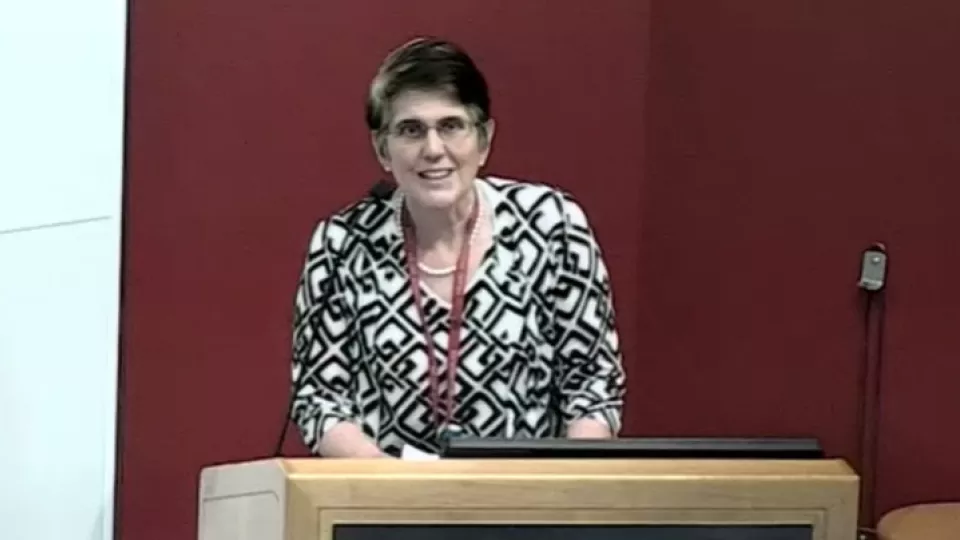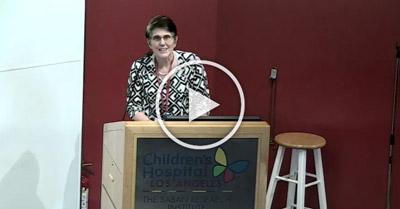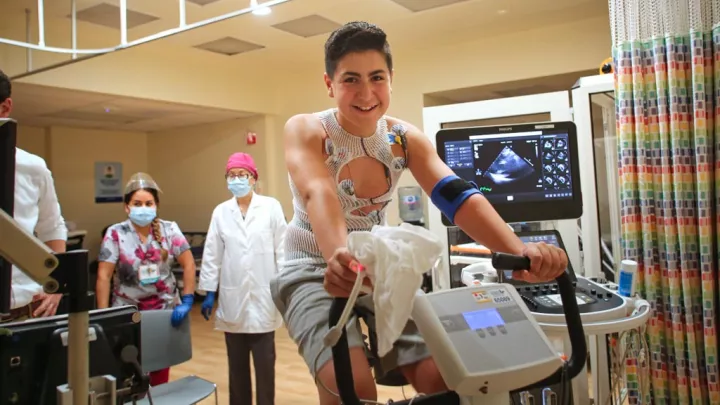
Children’s Hospital Los Angeles Identifies Additional MIS-C Cases
Update as of 5/29/2020
Children’s Hospital Los Angeles (CHLA) announced today that hospital physicians have identified two additional cases that can be classified as Multisystem Inflammatory Syndrome in Children (MIS-C).
This brings the total number of MIS-C cases identified at CHLA to six. The age range for the six children is four months to eight years and all have been successfully discharged from the hospital, says Jackie Szmuszkovicz, a pediatric cardiologist and Kawasaki Disease specialist at CHLA.
Five of the six MIS-C cases had Kawasaki Disease-like presentation, and one experienced hemodynamic instability (shock). All six had positive antibody testing, which can identify if an individual had an infection in the past. None of the six children tested viral positive for active COVID-19 after a nasal swab test and they were not contagious when they were admitted for treatment at CHLA.
The six MIS-C cases come from a total of 21 Kawasaki Disease patients who have been tested for antibodies since April 1st. Fifteen of these patients have tested negative for antibodies but these children will continue to be tested in case they develop antibodies later.
Treatment for Kawasaki Disease can include IV immunoglobulin, anticoagulation, steroids, and other immune system modulators. The patients who are being treated for shock in the intensive care unit may receive respiratory support or medications to improve heart function, in addition to other therapies.
The Children’s Hospital Los Angeles MIS-C team is comprised of pediatric specialists in the fields of cardiology, infectious diseases, allergy and immunology, hospital medicine and rheumatology. The hospital continues to share its information with community pediatricians.
“We have been communicating with pediatric specialists from centers across the country and around the world,” Szmuszkovicz says. “We are entering our patients in registries to help define the nature of the illness and demographics and we are also collaborating on research projects to help define the best treatment and practices.”
More information about MIS-C can be found on CHLA.org and on the CHLA.org Newsroom page.
Update as of 5/13/2020
Children’s Hospital Los Angeles Experts Discuss Pediatric Multisystem Inflammatory Syndrome in Children and its Potential Connection to COVID-19 in Pediatric Patients with Kawasaki Disease

This April, Children’s Hospital Los Angeles (CHLA) has seen an increase in cases of typical and atypical Kawasaki Disease (a rare condition affecting children) as compared to the previous two years.
This aligns with recent reports from the United Kingdom and New York City about cases of extreme inflammation among children with COVID-19, in what was recently called PIMS (Pediatric Inflammatory Multi-System Syndrome). It is now being referred to by health authorities as Multisystem Inflammatory Syndrome in Children, or MIS-C.
“Since April first, we have treated 16 cases of children who exhibited symptoms consistent with Kawasaki disease at Children’s Hospital Los Angeles,” says Jackie Szmuszkovicz, MD, Pediatric Cardiologist, Kawasaki Disease Specialist, Children’s Hospital Los Angeles. “None of them tested positive for acute COVID19 disease.”
Of this group of patients, the hospital examined antibodies in 14 patients (looking for evidence of past infection). Four have positive antibody testing and 10 have negative antibody testing to date. The four positive results indicate that their inflammation may have been a late response to a recent past infection with SARS-Cov-2 (which causes COVID-19). Our Kawasaki Disease team is now following up with all of our patients who were diagnosed with Kawasaki Disease since January 1, to test them for SARS-CoV2 antibodies, Szmuszkovicz says.
Szmuszkovicz and other CHLA experts provided details about PIMS/MIS-C and its impact on pediatric patients at a virtual press conference on Wednesday, May 13.
“The three patients that we saw with symptoms consistent with PIMS have all been successfully discharged home,” she says. “Those patients range in age from 8 months old to 2 years of age. We recently diagnosed a fourth patient with PIMS, who is admitted in our hospital in critical condition at this time,” Szmuszkovicz says.
“It's important to emphasize that when these four children were treated at CHLA, they did not test viral positive for active COVID-19 and were not contagious at the time of admission,” says Michael Smit, an Infectious Disease specialist at CHLA. “We test all of our inpatients to support the safety of our patients, families and staff. The positive antibody test can identify if an individual had an infection in the past. For these patients, a positive antibody test leads us to believe that these children had a prior infection of COVID-19 and the PIMS condition is likely a late inflammatory response to a previous acute infection.”
What physicians are learning is that the manifestations of PIMS/MIS-C can range broadly, from a syndrome similar to Kawasaki Disease, to a syndrome more similar to toxic shock syndrome in some children, Szmuszkovicz says.
Children’s Hospital Los Angeles has a clinical plan in place to assure prompt testing and treatment for children who may have PIMS/MIS-C. “Building on our legacy of care in the field of Kawasaki Disease, which typically affects about 5,500 children in the United States each year, our multidisciplinary team is ready to take on this new challenge together,” she says.
“The reason that every member of the Children’s Hospital Los Angeles team comes to work every day, is to take care of children: that is why we are here,” Szmuszkovicz says. “I am confident that each child is getting the care that they need promptly, from a multidisciplinary specialized team that is devoted to their individualized care plan.”
Kawasaki Disease can lead to inflammation of the walls of arteries, which can cause coronary artery enlargement (or aneurysms) in children, Szmuszkovicz says.
Treatment for Kawasaki Disease can include IV immunoglobulin, anticoagulation, steroids, and other immune system modulators. All new patients with signs of Kawasaki Disease are being carefully evaluated for PIMS. Test results will help doctors better understand the impact of the novel coronavirus on the pediatric population.
This information is being shared with the 209 physicians currently affiliated with our Children’s Hospital Los Angeles Health Network, says Jim Stein, Chief Medical Officer, Children’s Hospital Los Angeles. “We also made a commitment to disseminate findings with the public and with community pediatricians and emergency department clinicians, and we are doing that today starting with this session,” Stein says.
A virtual education webinar that the hospital hosted Wednesday drew more than 700 community pediatricians and emergency room clinicians. Children’s Hospital Los Angeles alerted them to be looking for children with:
- high fever that is persisting for 4-5 days or more with other symptoms that may include:
- rash
- red cracked lips or red tongue
- red eyes
- swollen and/or red hands and feet
- an enlarged lymph node in the neck
- abdominal pain and/or diarrhea without another explanation
- fever for 7 or more days in an infant, for which another explanation has not been identified
“If the spectrum of symptoms is met, it is important for clinicians to refer patients for multidisciplinary assessment and initiate treatment,” Stein says.
About Children’s Hospital Los Angeles
Founded in 1901, Children's Hospital Los Angeles is ranked the top children’s hospital in California and fifth in the nation for clinical excellence with its selection to the prestigious U.S. News & World Report Honor Roll of children’s hospitals. Clinical care is led by physicians who are faculty members of the Keck School of Medicine of USC through an affiliation dating from 1932. The hospital also leads the largest pediatric residency training program at a freestanding children’s hospital of its kind in the western United States. The Saban Research Institute of Children’s Hospital Los Angeles encompasses basic, translational and clinical research.
Contact: Lorenzo Benet lbenet@chla.usc.edu 323-361-4823


